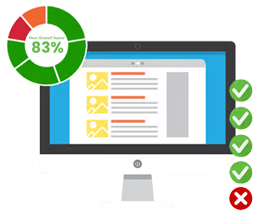Understanding the Risks of Using a WordPress Website: A Comprehensive Guide

WordPress is among the most widely-used Content Management Systems (CMS) worldwide. Its flexibility, ease of use, and broad range of features make it a preferred choice for businesses and individual users alike. However, like any software, it has potential risks and vulnerabilities that need to be considered. In this blog post, we'll delve into some of the primary risks associated with using a WordPress website and how to mitigate them.
1. Security Vulnerabilities
a. Plugins and Themes
WordPress's vast array of plugins and themes is one of its strongest selling points. Unfortunately, not all are created with the same attention to security.
Risk: Outdated or poorly developed plugins and themes can create vulnerabilities, making your site susceptible to attacks.
Mitigation: Regularly update all plugins and themes and ensure they are downloaded from reputable sources like the WordPress Plugin Repository.
b. Brute Force Attacks
Risk: By attempting multiple username and password combinations, hackers can gain access to your WordPress admin area.
Mitigation: Utilise strong passwords and consider implementing two-factor authentication. Plugins that limit login attempts can also be helpful.
2. SEO Spam
Risk: Malicious actors can inject spammy links or content into your site, damaging your SEO rankings.
Mitigation: Regular monitoring for unusual content changes, keeping WordPress core and plugins up to date, and employing security plugins can help you stay on top of this issue.
3. Data Loss
Risk: Whether due to hacking, server failure, or human error, losing your website data can be devastating.
Mitigation: Regular backups are essential. Employing a plugin that automates this process, or utilising a professional backup service, can ensure that you can quickly restore your site if something goes wrong.
4. Compliance Risks
a. GDPR and Privacy Laws
Risk: Failing to comply with legal regulations such as GDPR can result in hefty fines.
Mitigation: Ensure that your website complies with all relevant laws by incorporating necessary legal pages and opt-in forms for data collection.
5. Performance Issues
a. Site Speed
Risk: Heavy themes or too many plugins can slow down your site, negatively affecting user experience and SEO.
Mitigation: Opt for lightweight themes and carefully choose plugins. Regularly monitor site speed and make necessary adjustments.
b. Compatibility Issues
Risk: Updates to WordPress core or plugins might lead to compatibility issues, causing features to break.
Mitigation: Test all updates in a staging environment before applying them to the live site.
While WordPress is a robust and user-friendly platform, it is not without risks. However, understanding these risks and implementing appropriate measures can greatly reduce potential problems. Regular updates, careful selection of plugins and themes, adherence to legal compliance, and ongoing site monitoring are all part of maintaining a secure and efficient WordPress website. By keeping these factors in mind, you can continue to enjoy the benefits of WordPress while minimising the associated risks.
Our Approach: Why We Don't Use WordPress
At Web Ideas, we have carefully assessed the risks associated with using WordPress and have made a conscious decision not to utilise this platform for our web development needs. Amongst the reasons cited above, we also found other considerations that led us to develop our own proprietary platform. By doing so, we've managed to create a more secure and robust system that is tailored to our specific requirements, without the vulnerabilities commonly associated with third-party themes and plugins. Our in-house platform provides us with greater control over security, performance, and compliance, ensuring that we deliver a seamless and secure experience for our clients. By opting for our custom solution, we're able to offer a level of reliability and safety that generic platforms may struggle to match.
Want to know more - Contact Us



